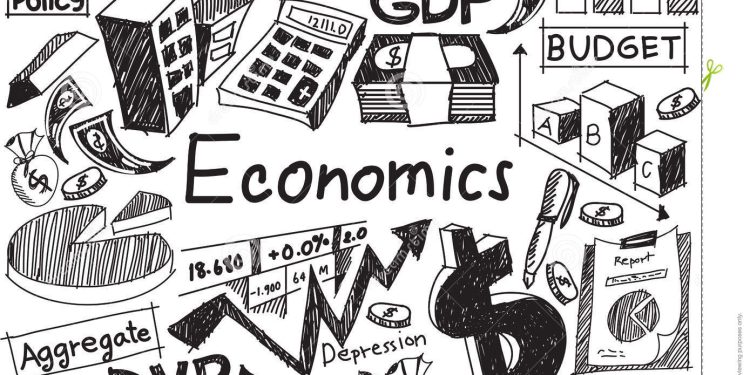Have you ever yearned for a better understanding of the stock market? Have you ever been bombarded with terms like “microenterprise,” “macroeconomics,” “gross domestic product,” etc.?
Economics is one of the most important applied subjects due to its intrinsic involvement in our personal lives as well as the international markets.
Understanding the big picture is key to managing personal finances and making healthy and informed decisions about your own money based on the current economic situation at local, regional, national, and international levels. For this, financial education is a must.
Whether you are an economics aspirant or simply looking to become an investor, look no further. Today, there is no need to throw away your job and head back to school for pursuing an economics degree.
Take a look at the number of free and paid economics courses listed below to start your economic journey today:
1. Financial Markets by Yale University [Coursera]
Taking approximately 34 hours to complete, it is instructed by Professor Shiller, and it has over 8,000 reviews where over 40% of learners received career-related benefits after undertaking the course. It describes real-world scenarios involving insurance and the banking sector. The course explains details such as the mortgage crisis, economic depressions, and bond markets which will enable the learner to understand how to decipher the future from the past. It also connects human behavior and psychological foundations for financial decision-making.
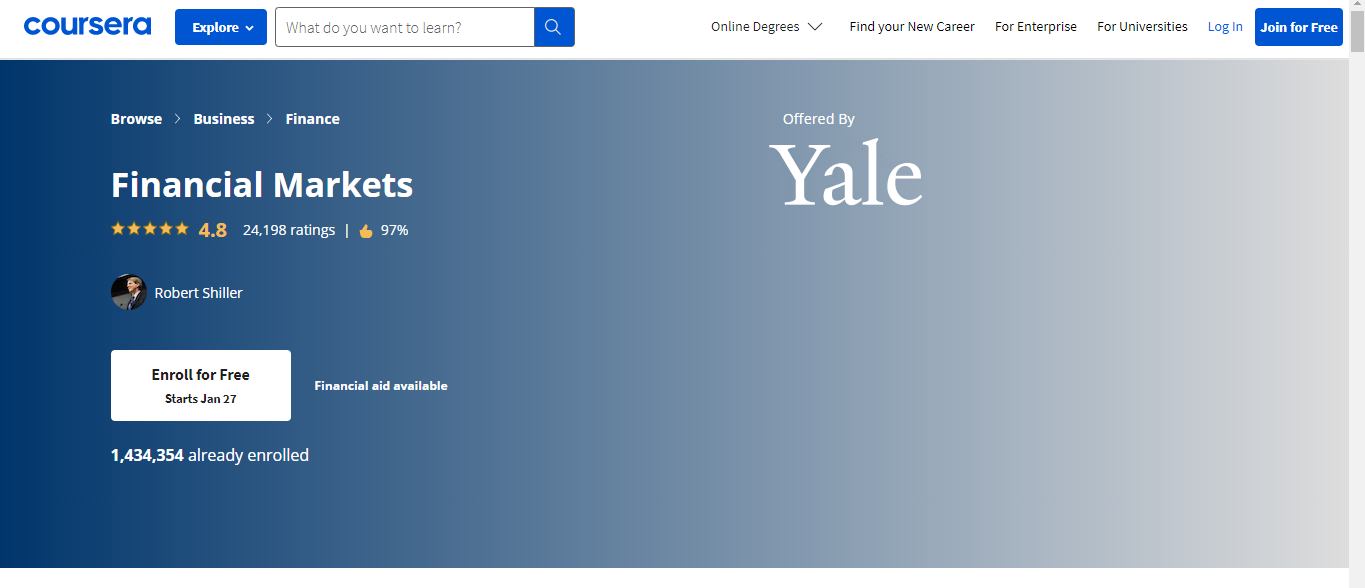
2. Introduction to Microeconomics in the Real World [Udemy]
This course offers a free certificate but is considered too short and possibly too fast by a number of learners. It brings out knowledge of fiscal economics, taxes, and social, tax, and fiscal policies related to trade and the free market. It is taught by instructors from the UtopiaCraft initiative. It is available “on the go-to,” meaning can be learned on a mobile device and is available to be placed on a CV upon completion.
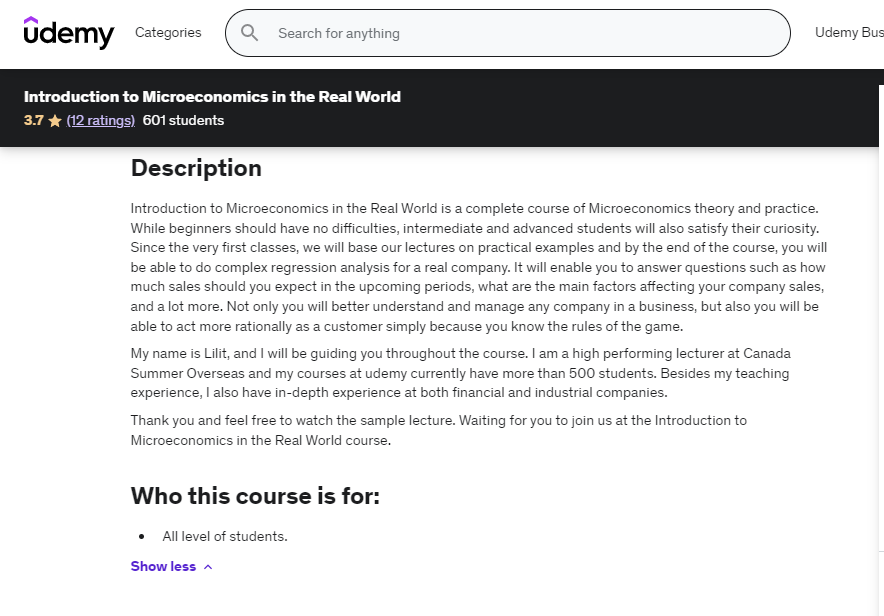
3. Economics: Consumer Demand by Babson College For Beginners [edX]
It is a 4-week course known for beginners in economics, where learners will get to build a great fundamental understanding of the subject. Upgrading for this course on edX allows for unlimited access to graded projects, tests, and certification, but course material can initially be accessed for free. Praised for its great user interface, the course is easy to understand and taught by Professor John Korsak, emphasizing the concept of demand.
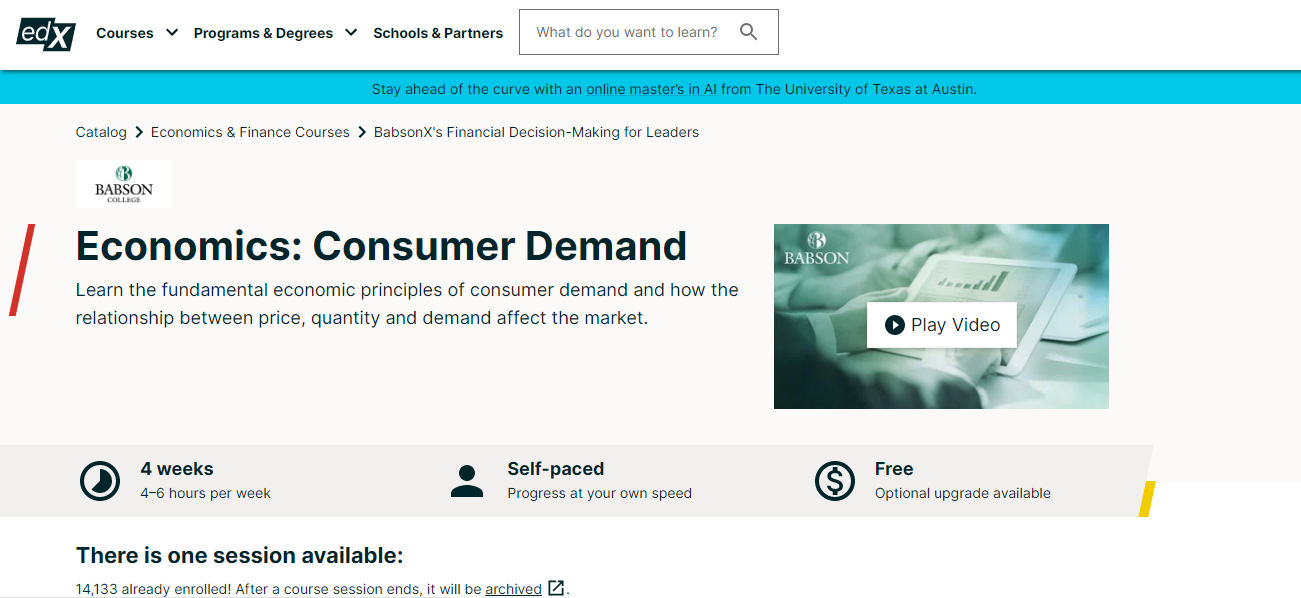
4. Introduction to Economic Theories by Erasmus University Rotterdam [Coursera]
This 8-week course explains the concept of economic pluralism, which rationalizes the inability to predict certain human behaviors related to economics, utilizing a combination of theoretical and methodological approaches to building a holistic image of economic viewpoints and basic economic calculations. It is a beginner-level course for learners to enter, and payment is required for a shareable certificate.
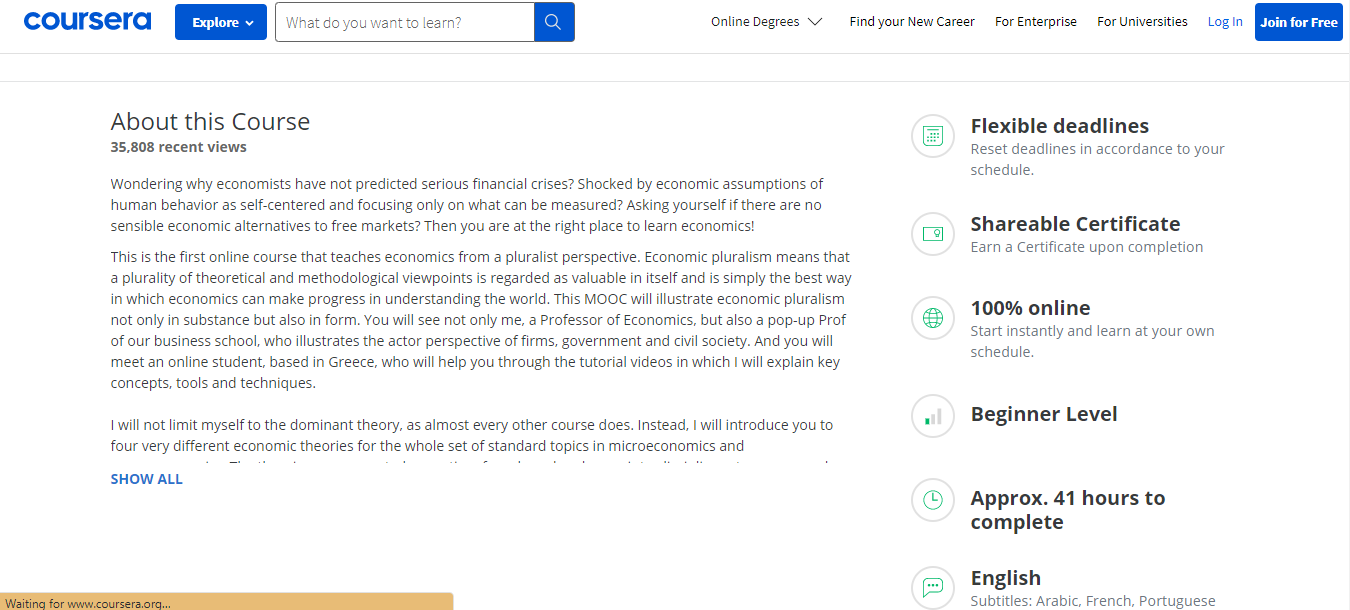
5. AP Microeconomics by MIT [edX]
The college-level course teaches through real-world situations, graphical supports, and intuitive explanations. Gaining a paid verified learner certificate allows learners to gain the maximum benefit within 12 weeks, and high schoolers can especially ace their AP exams.
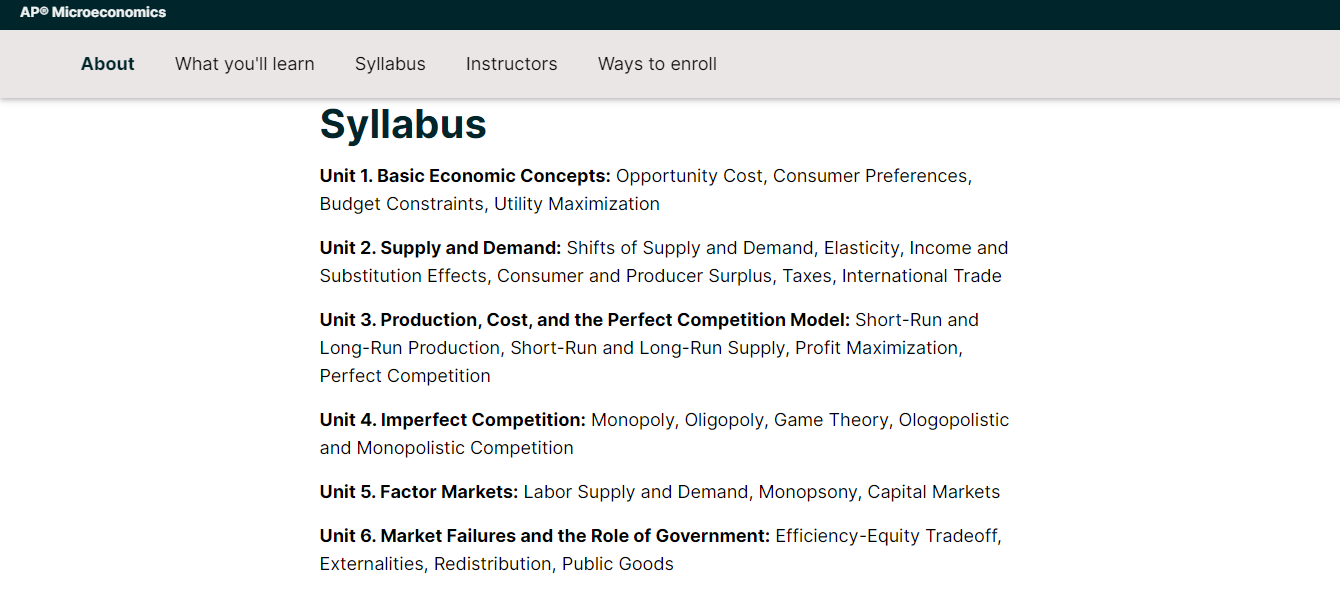
6. Fundamentals of Macroeconomics by Universidad Carlos III de Madrid [edX]
For a closer view into why certain aspects of investment work and others do not, this 6-week course offers an insider view into the trading market and the factors contributing to potential success or failure, as well as visual examples such as case studies of the different outcomes that could take place. Being a relatively simple course, the simpler terms, such as gross domestic product and consumer price index, are explained for a better comprehensive understanding of the situation on a national and international level, helping make better-informed decisions at home as well.
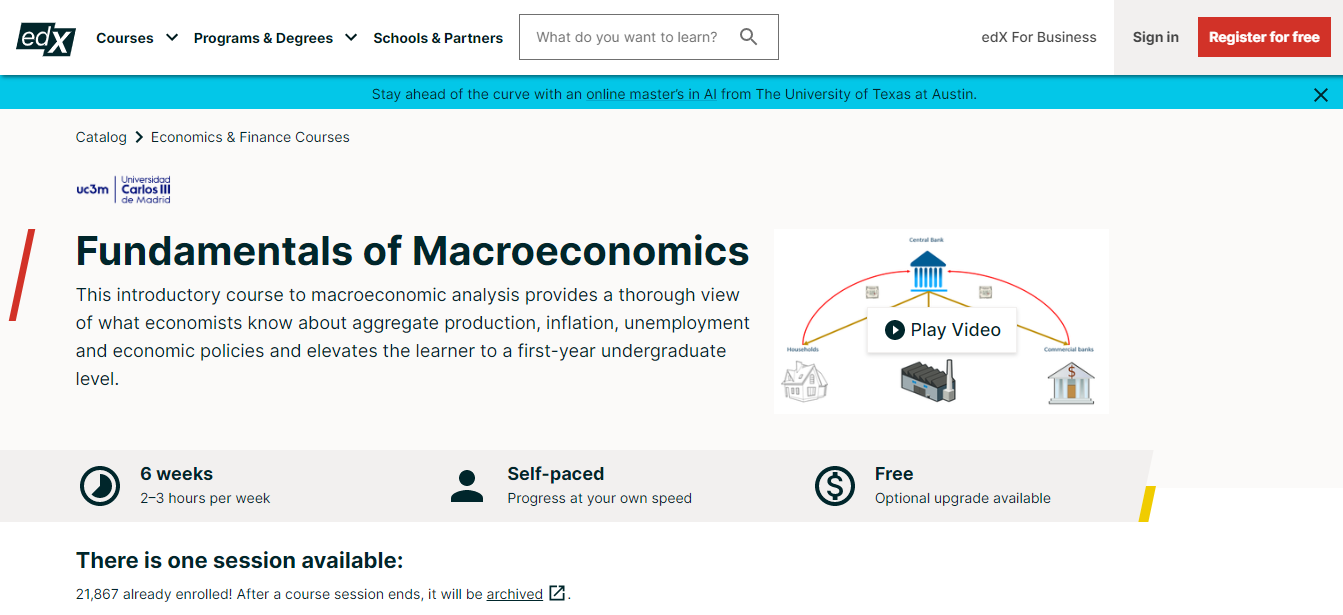
7. Microeconomics Principles by the University of Illinois at Urbana-Champaign [Coursera]
The course focuses on the application of economics and its roles in marriage and love, crime, and other sociological aspects relevant to daily life and a local perspective. It also provides a look into how supply and demand drive the financial markets at national and international levels, circling back to individual effects, as well as government policies in the marketplace.
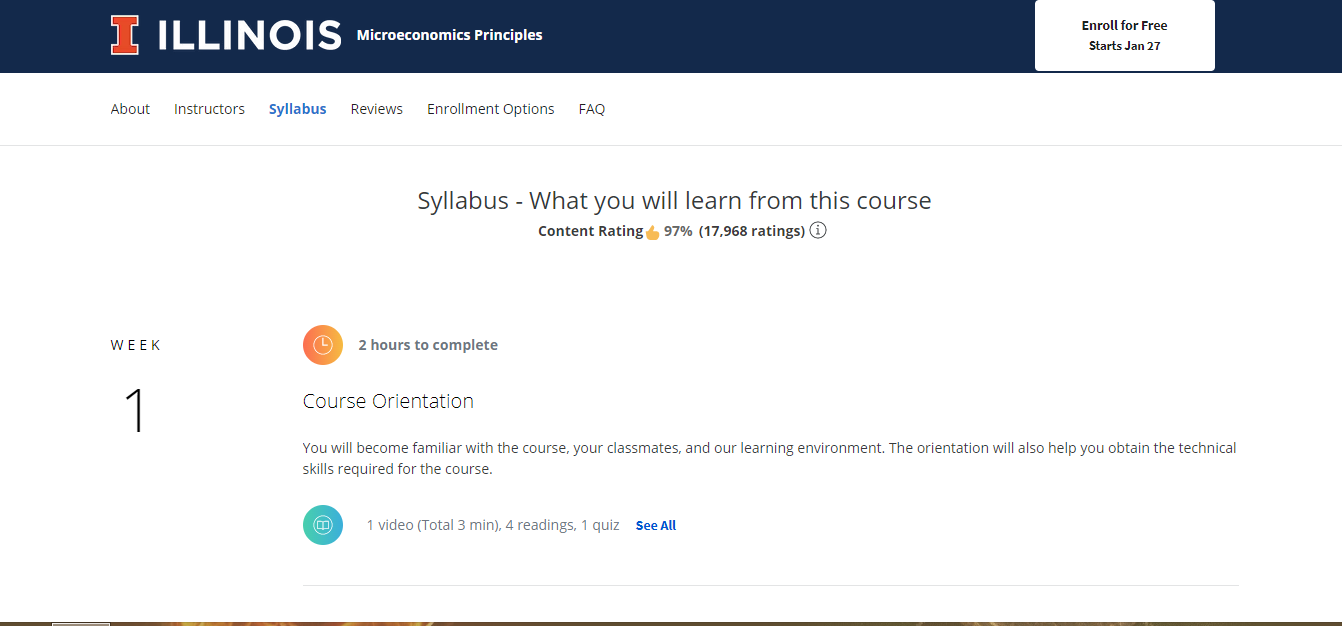
8. Economics by Crash Course [YouTube]
The course offers 6 hours of material offered by Jacob Clifford and Adrienne Hill for those who want to merely get an idea of the subject itself and learn basic economic terms and processes for day-to-day function.
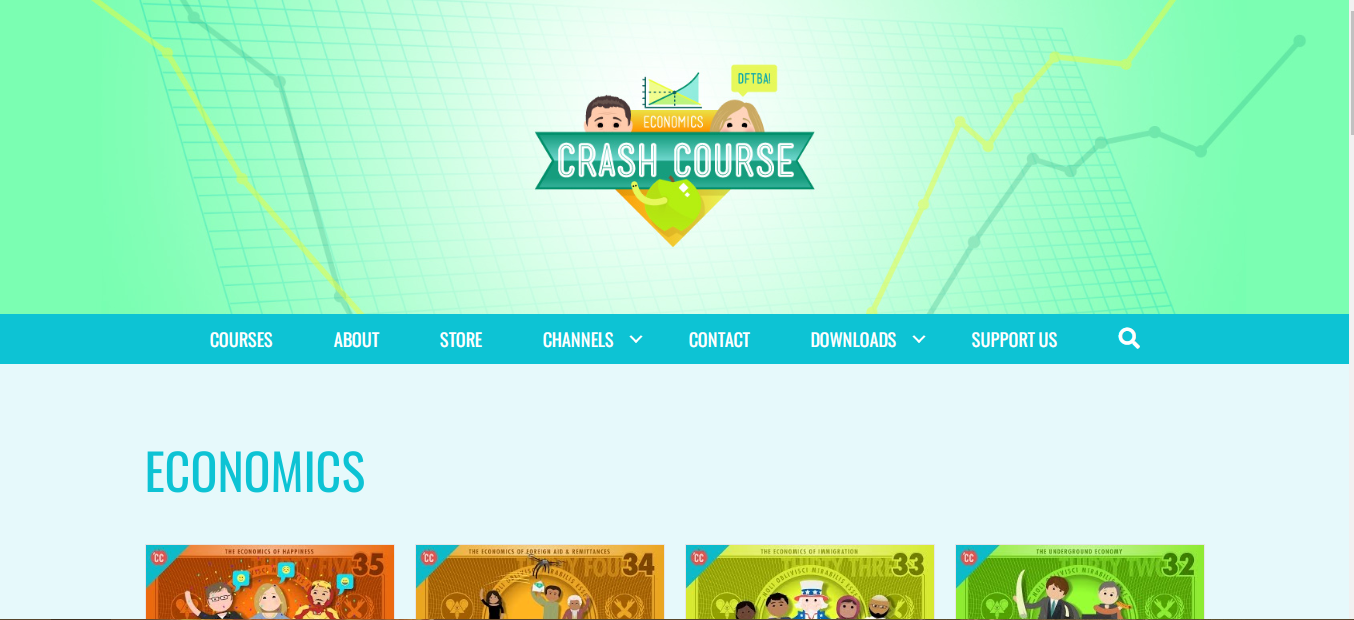
9. Mathematical Economics by Doon University, Dehradun [Swayam]
This course converts situations into numbers and a model where the data can be manipulated to change the variables to be able to solve complex problems. The extent of change can be measured, and economic applications are created through the instruction of linear equations and duality in linear programming.
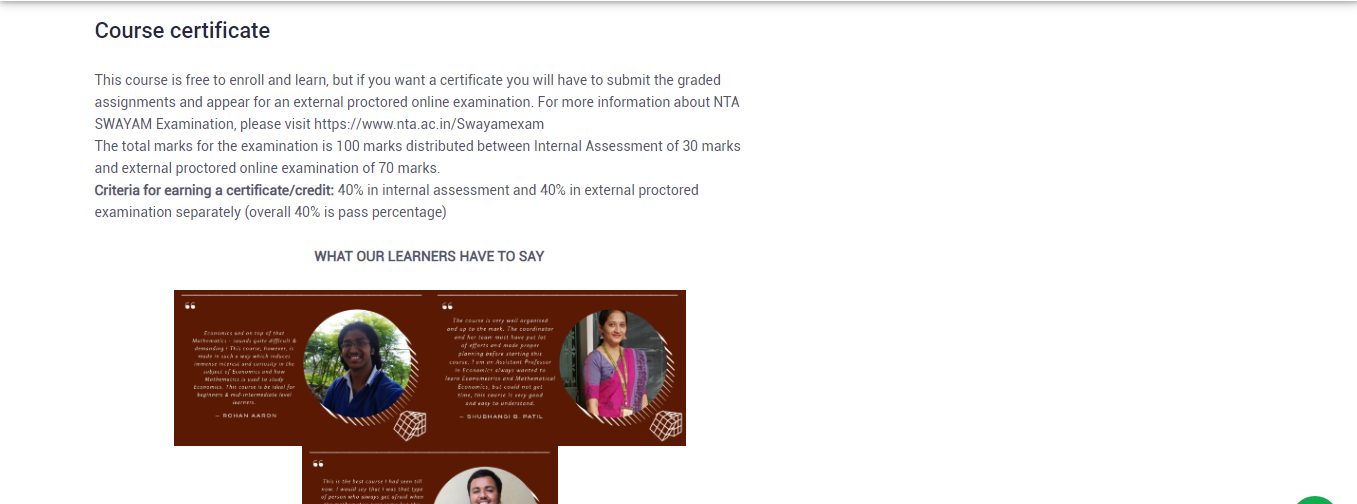
10. Economics of Money and Banking, Part One by Columbia University [Coursera]
Sponsored by the Institute for New Economic Thinking, the course focuses on aspects of the 2007-2009 financial depression and its aftermath. This course takes around 5-7 weeks to complete but offers a certificate and talks about the hierarchy of money and different types of settlements. The course may not be available at certain periods but can be audited at those stages, with a high rating as well.

11. Microeconomics: The Power of Markets by the University of Pennsylvania [Coursera]
The course has a 95% positive rating and takes approximately 15 hours to complete. It is a comprehensive syllabus focusing on Supply and Market, where the financial effect of the government intervention in the trading market. With over 200 ratings, this course, instructed by Rebecca Stein, highlights a variety of concepts that may be missed by the general eye, including scarcity, supply, and demand affecting any market. The picture below is a summary of the given syllabus on the site.
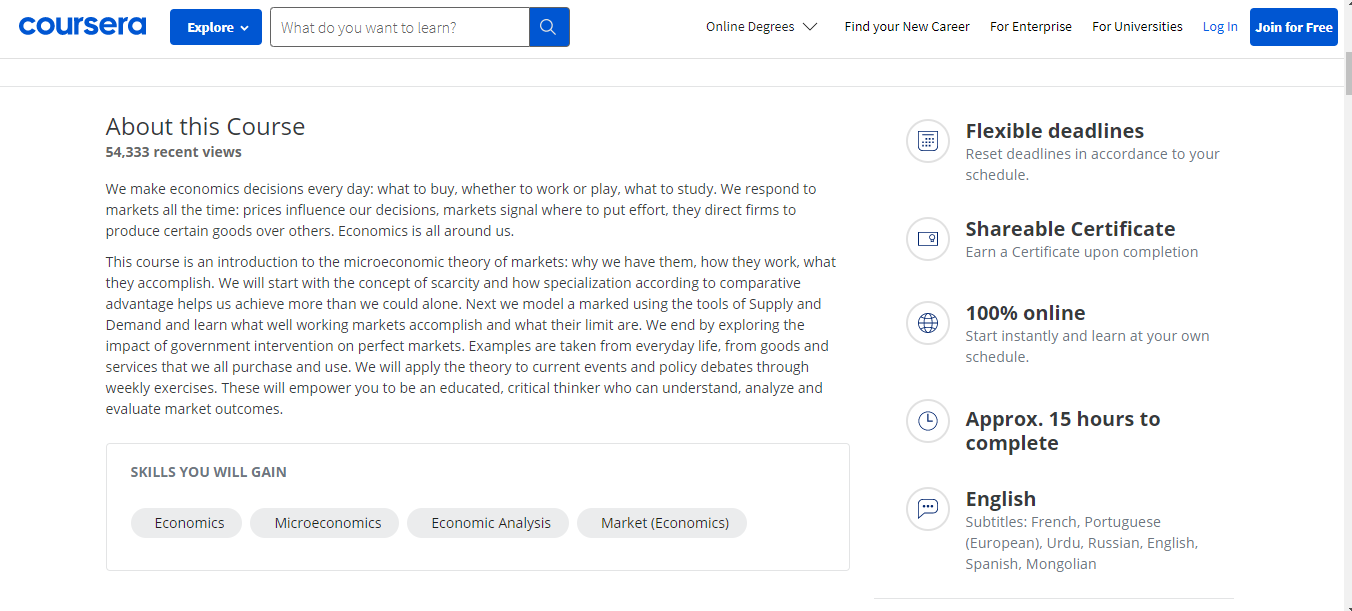
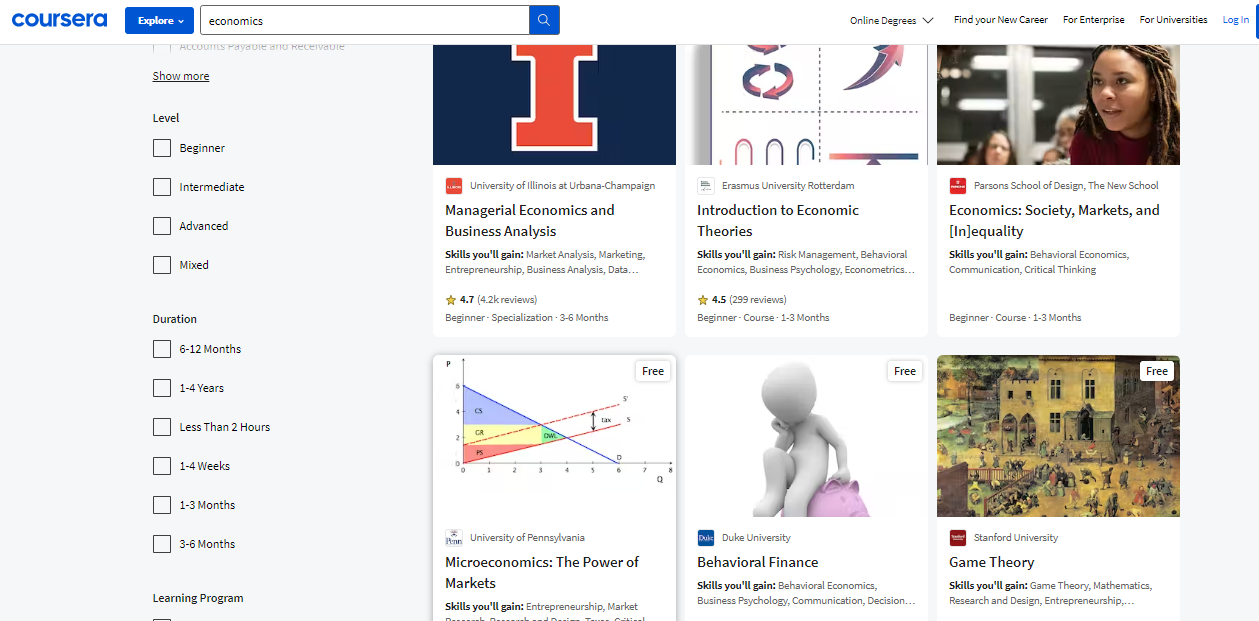
Verdict on Online Economics Courses:
Coursera Courses: Although the majority of the content is free, an e-certificate for completion is obtained by making a standard payment; however, financial aid is available for those seeking it! A number of the above courses are for a time span of 1-3 months, but all in all, they range from time durations of 1-4 weeks to 3-6 months. The courses also mention the critical skills that can be gained upon completion of the course.
Udemy Courses: Being another famous e-learning source, Udemy offers courses with details of the price for the respective course. As a refreshing feature, the platform promises a 30-day money-back guarantee if the user is unsatisfied with the material, offering the user peace of mind upon selecting and entering a course. The top 5 popular courses are
- Economics: Market Forces of Demand, Supply, and Equilibrium
- The Economic Model of Emerging Countries – Michael Spence
- The Most Comprehensive (86 hrs!) Economics Course (Diploma)
- Economics in 10 Principles – for Everyday Life Decisions, Whether Personal or Professional
- The Macroeconomics Course 2023 – International Trade and Capital Flows, Fiscal Policies
Conclusion
In short, choosing the right online economics course is made easy as pie. There is no doubt that an active learner will benefit from any of the courses; each has its pluses and minuses, but any economics course can be made use of, whether for the management of personal finances or making a choice to invest.
Learning the tricks of the trade can never go wrong, so go out there and try out different courses to find your cup of tea, especially since a number of them offer free course material and return guarantees. Happy learning!


